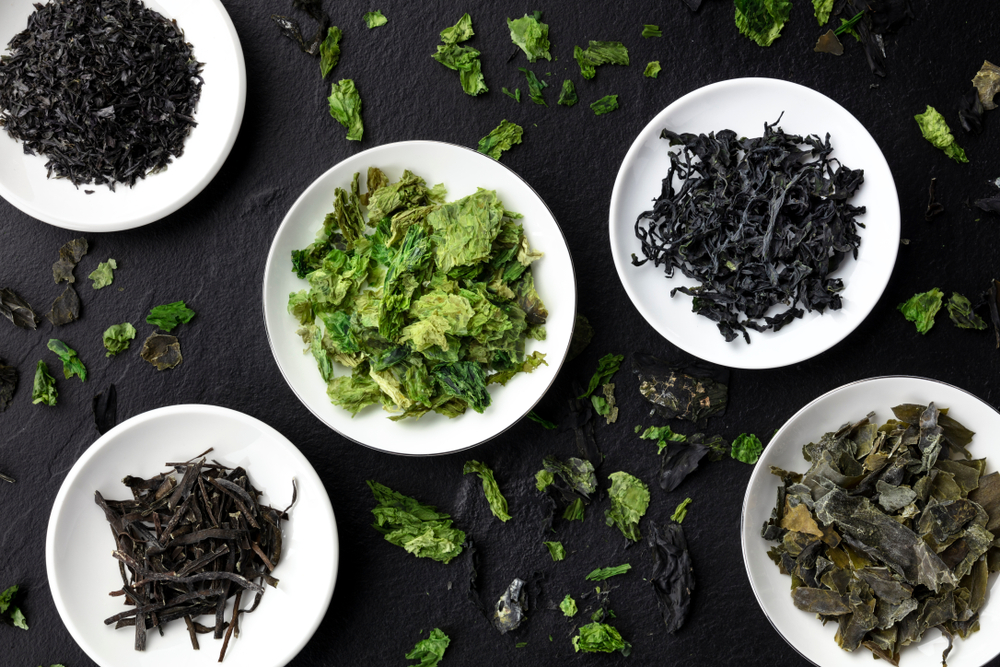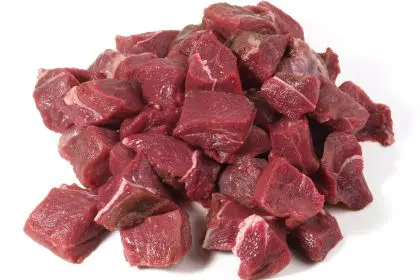Sea vegetables are transforming the way we think about food, nutrition, and sustainability. These nutrient-dense marine plants, long cherished in Asian cuisine, have surged in popularity across the globe, offering health-conscious consumers a sustainable option that thrives in the ocean rather than on land. As more people shift toward plant-based diets, sea vegetables have emerged as an unexpected hero, bringing not only a wealth of health benefits but also a sustainable solution to modern food production challenges.
Nature’s nutritional powerhouse
Sea vegetables are among the most nutrient-rich food sources available. Their unique growing environment allows them to absorb an impressive array of minerals, vitamins, and other beneficial compounds that are rarely found in land vegetables. These marine plants efficiently concentrate nutrients from seawater, making them an incredibly potent addition to any diet.
One of the most notable aspects of sea vegetables is their rich mineral content. Packed with iodine, calcium, magnesium, and potassium, these plants offer a variety of nutrients that support overall health. Additionally, sea vegetables contain specialized polysaccharides and bioactive compounds that set them apart from conventional land vegetables. These compounds have been shown to support immune function, reduce inflammation, and aid metabolic health, making them a valuable food source for individuals seeking to improve their well-being.
In addition to their nutrient density, sea vegetables have unique properties that make them a functional food. They provide not only essential vitamins and minerals but also have the potential to impact inflammation, immune function, and overall metabolism. As more people seek ways to enhance their health naturally, the growing popularity of sea vegetables is expected to continue.
Understanding potential considerations
While sea vegetables offer remarkable nutritional benefits, it’s important for consumers to approach them with awareness. Due to the complex nature of the ocean’s ecosystem, sea vegetables can sometimes accumulate both beneficial and potentially harmful substances. This underscores the importance of sourcing these plants responsibly.
Choosing high-quality sea vegetables from reputable suppliers ensures both safety and quality. Advances in harvesting techniques and modern testing methods have made it easier than ever to identify and eliminate any potential contaminants, providing consumers with the peace of mind they need. Regular monitoring of personal intake, especially for nutrients like iodine, can help individuals maintain optimal health benefits while avoiding any risks associated with overconsumption.
Diverse varieties and applications
The world of sea vegetables is vast, offering a diverse array of varieties, each with its unique flavor profile and culinary uses. These versatile plants are not limited to the familiar nori used in sushi but extend to a wide range of other ingredients that can be incorporated into everyday meals.
- Arame brings a subtle sweetness to dishes and is particularly versatile, complementing both traditional Asian recipes and Western-style dishes. Its delicate black strands rehydrate quickly, making it a convenient addition to everyday cooking.
- Kelp, known for its rich glutamate content, provides the coveted umami flavor that enhances many dishes. Kelp is not only a nutritional powerhouse but also a natural flavor enhancer, making it a popular choice for soups, stews, and salads.
- Kombu is a staple in Japanese cuisine, often used in dashi stock. Its mineral-rich composition enhances the flavor of broths and helps improve the digestibility of other ingredients, offering both flavor and health benefits.
- Sea moss has garnered attention for its unique gelling properties and nutrient density. This versatile ingredient functions as both a functional food and a natural thickening agent, making it popular in smoothies, soups, and various other dishes.
These varieties of sea vegetables offer a wide range of textures, flavors, and nutritional benefits, making it easy to experiment with different applications. From salads to soups and smoothies, incorporating sea vegetables into your diet can be both creative and nutritious.
Sustainable harvesting practices
The sustainable future of sea vegetables depends on responsible harvesting practices. Leading producers around the world are employing careful monitoring and rotation systems to ensure that marine ecosystems remain healthy and that the quality of harvested products is maintained. Sustainable harvesting methods not only protect the environment but also ensure that future generations can continue to enjoy the benefits of these nutrient-rich plants.
By adopting sustainable practices, the sea vegetable industry helps preserve ocean health and reduces the negative environmental impacts associated with other forms of agriculture. These practices align perfectly with global goals for sustainability and environmental stewardship.
Integrating sea vegetables into modern diets
Incorporating sea vegetables into your daily meals is simpler than it may seem. For those unfamiliar with the taste or texture of these marine plants, starting with small amounts can help ease the transition. As the body adapts to new flavors and textures, consumers can gradually increase their intake and begin to experience the health benefits these plants offer.
Simple preparation methods preserve the nutritional integrity and natural flavors of sea vegetables. They can be added to soups, stews, salads, or even blended into smoothies. Proper storage is key to maintaining their quality, and many sea vegetables can be easily stored in dried form, allowing for long shelf life without compromising their nutritional value.
The future of sea vegetables in global cuisine
As global food systems evolve, sea vegetables are positioning themselves as an integral part of the future of sustainable nutrition. With their minimal environmental impact, exceptional nutrient density, and versatility, they offer a compelling solution to modern dietary challenges. As research into the health benefits of these plants continues, new applications and innovative products are likely to emerge, further solidifying their place in mainstream diets.
The future of sea vegetables looks bright, offering an exciting and sustainable option for health-conscious consumers and those looking to reduce their environmental footprint. With continued advancements in harvesting techniques and culinary exploration, these marine plants are poised to play an increasingly important role in global food systems.
In the years to come, sea vegetables will likely become a staple in kitchens worldwide, offering a delicious and nutritious alternative to traditional plant-based ingredients while supporting the goals of sustainability and environmental responsibility.

















